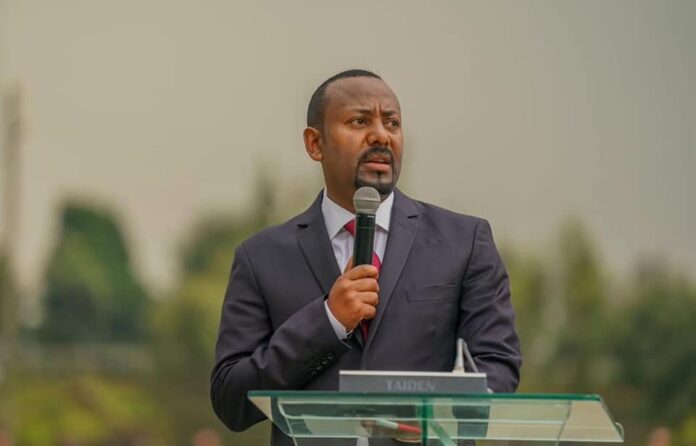ADDIS ABABA (KAAB TV) – In a momentous announcement, Ethiopian Prime Minister Abiy Ahmed declared that the Ethiopian government is leaving no stone unturned in its pursuit of a crucial port for the country.
The Prime Minister revealed that all options, including negotiation, “give and take,” and even the use of force, are on the table to attain this strategic objective.
Addressing a gathering of investors and businessmen on Thursday, Abiy emphasized the pressing need for Ethiopia to possess its own port, citing the exorbitant and unsustainable costs associated with relying on neighboring countries’ ports.
The move towards independent port access aims to reduce Ethiopia’s dependence on external trade gateways.
To materialize this vision, the Ethiopian government has already initiated negotiations with key regional players, namely Eritrea, Djibouti, and Somaliland, in the hope of securing a pathway to a port.
An extraordinary proposal has been tabled to Eritrea, offering a remarkable 30% stake in the renowned Ethiopian Airlines as a bargaining chip for coveted port access.
While peace remains the preferred path, Prime Minister Abiy asserted that employing force would be considered a measure of last resort: “We want to get a port through peaceful means, but if that fails, we will use force,” he stated unequivocally.
This groundbreaking announcement comes at a time when Ethiopia is under escalating pressure from the international community to resolve its longstanding border dispute with Eritrea.
The two nations engaged in a fierce conflict from 1998 to 2000, leaving the border sealed and contentious issues unresolved.
The Prime Minister’s determination to secure a port is being interpreted as a resolute commitment by the Ethiopian government to tackle this complex challenge head-on, even if it entails confronting potential conflicts and risks.
The landlocked Ethiopia is rapidly growing nation with a staggering population exceeding 120 million. The country has witnessed remarkable economic progress. Nonetheless, the lack of a direct port connection has emerged as a formidable barrier to its further economic development.
At present, Ethiopia heavily relies on the ports of Djibouti and Somaliland for the import and export of goods. However, these ports come with a hefty price tag and are often plagued by congestion issues, compromising Ethiopia’s economic efficiency.
As the nation braces itself for a decisive push towards securing its own port, the world watches closely, recognizing the gravity of this endeavor and its implications for Ethiopia’s future economic landscape.
The age-old border dispute with Eritrea continues to pose hurdles, complicating the path to a definitive agreement.


